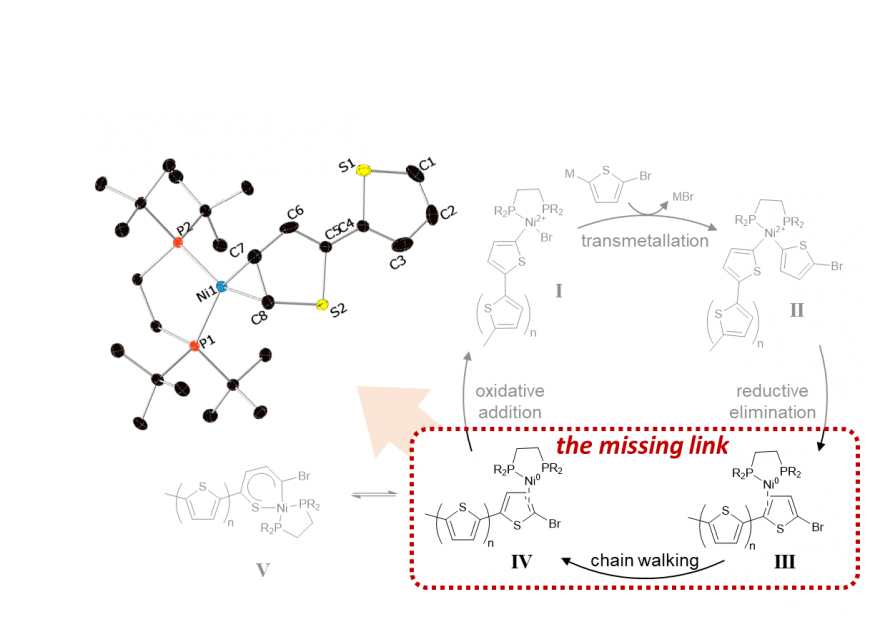Weiying He, a graduate student working with Prof. Pierre Kennepohl, recently uncovered important new insights into the mechanism of formation of polythiophenes – considered to be prime candidates as building blocks for molecular electronics. This work is discussed in a new report published in Nature Communications.
The mechanism of nickel-catalysed catalyst-transfer polycondensation (CTP) of thiophenes has been previously studied quite extensively but the specific nature of the potential Ni(0) intermediates have never been elucidated until now. With clever manipulation of the system, Weiying was able to trap, isolate, and structurally characterize square planar η2-Ni(0)–thiophene species and evaluate their relevance to the mechanism of catalyst-transfer polycondensation. Results from this work explain why CTP proceeds as a living polymerization and provides new insights into how it may be possible to more efficiently control the synthesis of thiophene-based molecular wires.

